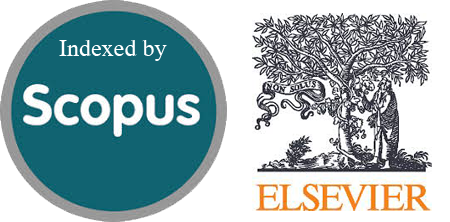Design of Psychomotor Domain Assessment Instruments in Indonesian Language Learning at Elementary Schools
DOI:
https://doi.org/10.14421/skijier.2023.72.01Keywords:
assessment instrument design, elementary school, indonesian language, psychomotorAbstract
The characteristics of psychomotor skills include sensory skills, alertness, and the ability to act in a complex manner. The psychomotor skills of students in learning Indonesian can be seen from the students' proficiency in writing stories. This study aims to describe how to create a design and assessment instrument in the psychomotor domain in Indonesian language learning. The method used in this study is descriptive qualitative research with library research as the type of research. Based on the research method and type, the data sources are books and scientific articles related to the topic. The results of the study show that the design and assessment instrument in the psychomotor domain in Indonesian language learning can be done in the form of tests and non-tests. Test assessment instruments can be conducted when the learning process has taken place, and non-test instruments can be conducted while the process is ongoing, namely when students are practicing
References
Abadi, Sela Marselyana. ‘Pengembangan Instrumen Penilaian Aspek Psikomotor Siswa Pada Praktikum Kimia Materi Termokimia’, 6 January 2016. https://repository.uinjkt.ac.id/dspace/handle/123456789/29989.
Aeni, Nur. ‘Pengembangan Psikomotorik Peserta Didik Materi Ajar Al-Qur’an Melalui Metode Snowball Throwing Di Kelas X. 2 MAN Pinrang’, 2020.
Akbar, M. Army, Rahmadi Rahmadi, and Muhammad Mulhim. ‘Intrumen Penilaian Harian Aspek Psikomotor Pendidikan Jasmani Olahraga Dan Kesehatan’. STABILITAS: Jurnal Pendidikan Jasmani Dan Olahraga 1, no. 1 (30 June 2020): 56–62. https://doi.org/10.20527/mpj.v1i1.485.
Dudung, Agus. ‘Penilaian Psikomotor’. K a RIMA, 2018, 1–220.
Eliza, Fivia, Suriyadi Suriyadi, and Doni Tri Putra Yanto. ‘Peningkatan Kompetensi Psikomotor Siswa Melalui Model Pembelajaran Project Based Learning (PjBL) Di SMKN 5 Padang’. INVOTEK: Jurnal Inovasi Vokasional Dan Teknologi 19, no. 2 (2019): 57–66.
Febrianti, Rizki Dinar. ‘Evaluasi Aspek Psikomotorik Siswa Kelas X Pada Metode Bandongan Dalam Mata Pelajaran Al-Qur’an Hadis (Studi Kasus Di MA Darul Huda Ponorogo)’, 2021.
Irawan, M. Ferry, and Alia Latifah. ‘The Implementation of Kahoot! Application as a Hots-Based Evaluation Media for Elementary School Students’. Al-Aulad: Journal of Islamic Primary Education 6, no. 2 (16 October 2023): 72–83. https://doi.org/10.15575/al-aulad.v6i2.26389.
Miranti, Kiki, Ahmad Rusyadi, and Fahmi Fahmi. ‘Melatih Keterampilan Psikomotorik Siswa Melalui Penggunaan Lembar Kerja Siswa (LKS)’. Journal of Banua Science Education 2, no. 2 (2022): 93–98.
Nada, Ana Quthratun, and Andi Prastowo. ‘Implementasi Evaluasi Kurikulum Sekolah (Studi Kasus Sekolah Dasar Di Kota Semarang)’. MODELING: Jurnal Program Studi PGMI 10, no. 3 (27 September 2023): 396–406. https://doi.org/10.36835/modeling.v10i3.1674.
Noptario, Noptario, Alia Latifah, Happy Fitria, and Fitria Nurliana Zulfa. ‘Application of the Skilbeck Model Curriculum Development in Elementary Schools in School Quality Assurance Efforts’. JIP (Jurnal Ilmiah PGMI) 9, no. 1 (28 August 2023): 82–92. https://doi.org/10.19109/jip.v9i1.17101.
Pasaribu, Asbin. ‘Implementasi Manajemen Berbasis Sekolah Dalam Pencapaian Tujuan Pendidikan Nasional Di Madrasah’. EduTech: Jurnal Ilmu Pendidikan Dan Ilmu Sosial 3, no. 1 (25 April 2017). https://doi.org/10.30596/edutech.v3i1.984.
Suarbawa, I Putu. ‘Penerapan Model Problem Based Learning (Pbl) Pada Mata Pembelajaran Corel Draw Untuk Meningkatkan Hasil Belajar Di Ranah Psikomotor’. Indonesian Journal Of Educational Research and Review, 2019, 162–71.
Sugiarti, Sugiarti. ‘Penilaian Psikomotor Siswa Pada Pembelajaran Fisika Melalui Model Pembelajaran Guided Inquiry’. PASCAL (Journal of Physics and Science Learning) 2, no. 1 (30 June 2018): 78–84.










